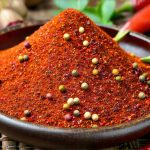The digestive system is an incredibly complex network responsible for breaking down food into nutrients our bodies can use. When this process becomes disrupted, leading to indigestion and gut irritation, it can manifest in various uncomfortable ways – bloating, gas, heartburn, abdominal pain, and even changes in bowel habits. While many factors contribute to these issues, the concept of acidic versus alkaline foods often arises as a potential influence. Understanding how different food groups interact with our digestive environment isn’t about rigidly adhering to ‘alkaline diets,’ but rather appreciating how certain choices might exacerbate or alleviate symptoms for individuals experiencing sensitive digestion. It’s crucial to remember that the human body is remarkably adept at maintaining pH balance, and drastic dietary shifts are rarely necessary or advisable without professional guidance.
The idea stems from the differing pH levels of foods and their potential impact on stomach acidity. Our stomachs naturally produce hydrochloric acid (HCl) to aid in digestion. This acidic environment is essential for breaking down proteins and activating digestive enzymes. However, an overabundance of highly acidic foods could theoretically overwhelm the system or contribute to increased acid production, potentially irritating a sensitive gut lining. Conversely, some believe that alkaline-promoting foods can help neutralize excess acidity. It’s important to note this isn’t about ‘neutralizing’ stomach acid—that would hinder digestion—but rather supporting overall digestive balance and reducing inflammation. This is where the nuanced understanding of food groups becomes vital, as simply labeling foods ‘acidic’ or ‘alkaline’ doesn’t tell the whole story. The body’s response to these foods varies significantly from person to person. You can learn more about how common medications impact gut health, which can exacerbate these issues.
Understanding Acidity & Alkalinity in Foods
The pH scale ranges from 0 to 14, with 7 being neutral. Values below 7 are acidic and above 7 are alkaline (or basic). Many foods are classified based on the ash they leave after being metabolized – essentially what remains after digestion. This ‘ash’ determines whether a food is considered acid-forming or alkali-forming. For example, lemons, despite tasting acidic, are often categorized as alkali-forming because of their mineral content and how they metabolize in the body. It’s this post-digestive effect that is key to understanding the concept, rather than the initial taste or pH of the food itself.
However, it’s a misconception to think you can significantly alter your blood pH through diet alone. The human body has very effective buffering systems to maintain a stable internal environment. What can change is the acidity levels in different parts of the digestive tract. Certain foods might increase stomach acid, potentially triggering heartburn or indigestion in susceptible individuals, while others may soothe and support the gut lining. Focus should be on how individual foods affect your body, not blindly following generalized alkaline diet recommendations. If you experience frequent issues, understanding irregular eating habits can also be helpful.
The impact isn’t just about pH levels either. Foods also differ in their digestibility and potential to cause fermentation in the gut. Highly processed foods, those high in fat, or certain types of carbohydrates can linger longer in the digestive system, leading to gas production and bloating – symptoms often associated with indigestion. Fiber, while generally beneficial, can sometimes contribute to these issues if introduced too quickly or consumed in excessive amounts, particularly for individuals with conditions like Irritable Bowel Syndrome (IBS).
Common Acidic Foods & Potential Impacts
Many common foods naturally fall into the acidic category. These include:
– Citrus fruits (lemons, oranges, grapefruits) – can irritate acid reflux sufferers
– Tomatoes and tomato-based products – known trigger for heartburn in some
– Coffee and alcohol – stimulate stomach acid production
– Processed meats – often high in acidity and difficult to digest
– Dairy products – can cause issues for lactose intolerant individuals
The effect of these foods varies greatly. A healthy digestive system usually handles them without issue, but someone with GERD (Gastroesophageal Reflux Disease) or a sensitive stomach might experience increased heartburn after consuming citrus fruits or tomatoes. Similarly, coffee’s stimulating effect on acid production can exacerbate indigestion in some people. It’s important to listen to your body and identify personal triggers. You may find foods that calm the stomach more helpful if you frequently experience these symptoms.
It’s also crucial to understand that acidity isn’t inherently bad. Stomach acid is vital for digestion! The problem arises when there’s an imbalance or hypersensitivity, leading to discomfort. Furthermore, combining acidic foods with other food groups can impact their digestive effect; for example, pairing citrus fruit with a high-fat meal might slow down digestion and increase the risk of heartburn. Understanding high-fat diets can help you make informed food choices, too.
Common Alkaline Foods & Potential Benefits
On the opposite end of the spectrum are alkali-forming foods. These generally include:
– Most vegetables (especially leafy greens) – easily digestible and nutrient-rich
– Fruits (excluding citrus fruits, in some cases) – provide fiber and vitamins
– Nuts and seeds – offer healthy fats and minerals
– Legumes – good source of protein and fiber
These foods are often gentler on the digestive system and can contribute to overall gut health. Vegetables provide fiber, which supports regular bowel movements and a healthy microbiome. Nuts and seeds offer essential fatty acids that can help reduce inflammation. However, even alkaline foods can cause issues for some individuals. For example, legumes can produce gas in sensitive stomachs, and certain vegetables (like cruciferous vegetables – broccoli, cauliflower) might be harder to digest for those with IBS.
The benefits of these foods aren’t solely based on their ‘alkaline’ nature; it’s about their nutritional value and how they support the digestive process. Choosing whole, unprocessed foods is always a good starting point for improving gut health, regardless of their pH classification. If you are traveling, consider comprehensive strategies to manage indigestion while away from home.
Identifying Personal Triggers & Dietary Adjustments
The best approach to managing indigestion and gut irritation isn’t following a rigid diet but rather identifying personal triggers. This can be achieved through:
1. Food Diary: Keep a detailed record of everything you eat and drink, along with any associated symptoms. Note the timing of symptoms relative to your meals.
2. Elimination Diet: Under the guidance of a healthcare professional, temporarily remove potential trigger foods from your diet and gradually reintroduce them one at a time, monitoring for reactions.
3. Mindful Eating: Pay attention to how different foods make you feel during and after consumption. Slow down, chew thoroughly, and avoid overeating.
Dietary adjustments should be tailored to individual needs. For example:
– If citrus fruits trigger heartburn, reduce or eliminate them from your diet.
– If legumes cause gas, soak them overnight before cooking or try consuming smaller portions.
– If dairy causes bloating, explore lactose-free alternatives or consider a food intolerance test.
It’s essential to consult with a registered dietitian or healthcare professional before making significant dietary changes, especially if you have underlying health conditions. They can provide personalized guidance and help ensure you’re meeting your nutritional needs while managing your digestive symptoms.
The ultimate goal is not to eliminate all ‘acidic’ foods but to find a balanced approach that supports optimal digestion and minimizes discomfort. Understanding the interplay between food choices, individual sensitivities, and overall gut health is key to achieving lasting relief from indigestion and irritation. Recognizing daily habits that disrupt digestion can also be a significant step toward improving gut health.


















